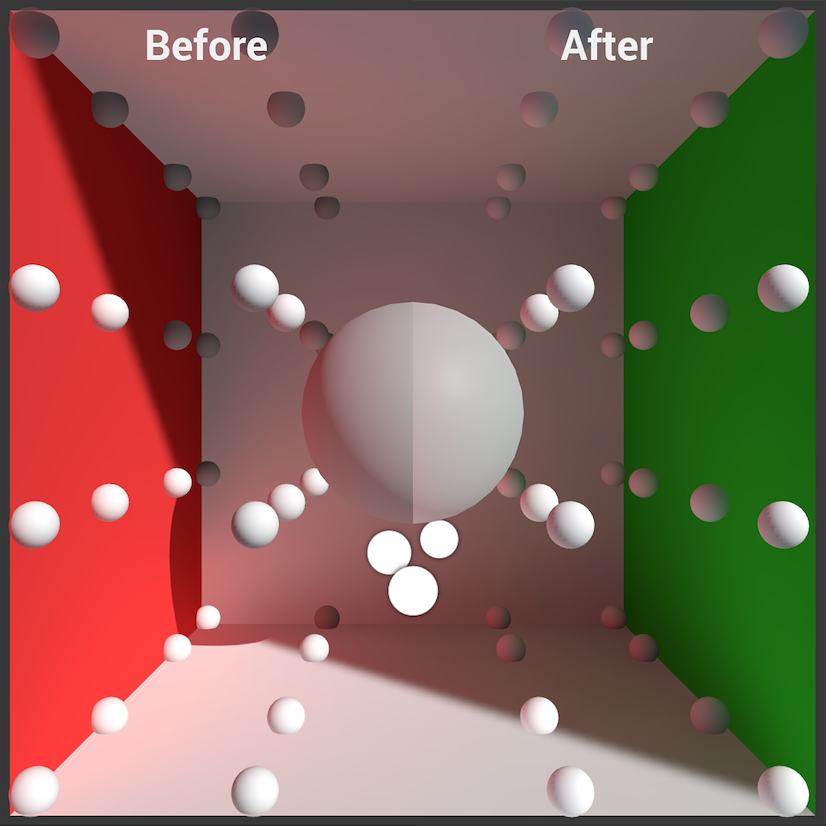Upgrading to Unity 2019.1
This page lists any changes in 2019.1 which might affect existing projects when you upgrade from earlier versions of Unity
Lighting Improvements
Prior to 2019.1 Indirect Intensity slider only affected lightmapsA pre-rendered texture that contains the effects of light sources on static objects in the scene. Lightmaps are overlaid on top of scene geometry to create the effect of lighting. More info
See in Glossary when using the Progressive LightmapperA tool in Unity that bakes lightmaps according to the arrangement of lights and geometry in your scene. More info
See in Glossary. For EnlightenA lighting system by Geomerics used in Unity for lightmapping and for Realtime Global Illumination. More info
See in Glossary, it was applied to both light probesLight probes store information about how light passes through space in your scene. A collection of light probes arranged within a given space can improve lighting on moving objects and static LOD scenery within that space. More info
See in Glossary and light maps. Now all backends apply Indirect Intensity value to both lightmaps and light probes.
Upon baking the lighting again, you might notice that the probes will appear brighter if the Indirect Intensity value was modified.
It is best to Clear Baked Data prior to baking lightmaps again after the upgrade.

UI Elements is now a standard feature and not experimental.
See the UI Elements 2019.1 upgrade guide for more information.
UnityAPICompatibilityVersionAttribute constructor change
The constructor that takes a single string is now obsolete. See the documentation for information on the supported overloads.
Changed System Requirements
Projects made with Unity 2019.1 require versions macOS 10.12 or Ubuntu 16.04 or later.
Multiplayer (UNet) High level API has moved to a package
The multiplayer high level APIA system for building multiplayer capabilities for Unity games. It is built on top of the lower level transport real-time communication layer, and handles many of the common tasks that are required for multiplayer games. More info
See in Glossary has been moved from an extension to a package. This doesn’t affect the NetworkTransport class (the low level API). All dependencies which were in the Unity engine have been moved to the package. This means the high level API is now independent except for some hooks into the profilerA window that helps you to optimize your game. It shows how much time is spent in the various areas of your game. For example, it can report the percentage of time spent rendering, animating or in your game logic. More info
See in Glossary which couldn’t be migrated at this time.
Older Projects containing the high level API will have the package automatically added to prevent compiler errors. This does not happen for new Projects and you can add it if required from the Package Manager window. See the multiplayer high level API documentation.